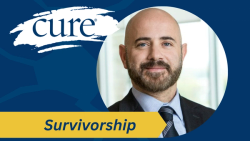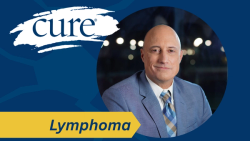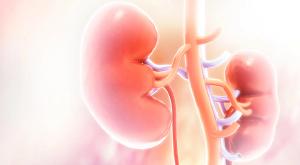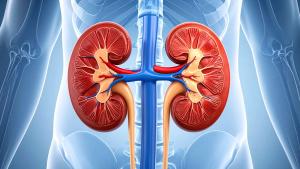Metastatic Kidney Cancer Requires a Multidisciplinary Approach to Care
CURE spoke with Dr. William C. Huang about what kind of team may be required to treat a patient with metastatic kidney cancer.
For patients with metastatic kidney cancer, a multidisciplinary approach to care is required, Dr. William C. Huang explained to CURE.
Huang, who is the chief of urologic oncology at NYU Langone's Perlmutter Cancer Center in New York City, sat down for an interview with CURE as Kidney Cancer Awareness Month — which is observed in March — came to a close.
Kidney cancer is a disease that starts in the kidneys and then spreads to other parts of a patient’s body. Caring for patients with this type of cancer can involve the participation of urologic surgeons, medical oncologists and occasionally radiation oncologists, Huang explained in the interview.
“Frequently, when patients have metastatic disease, they have other sites of the kidney cancer, [with the disease] having gone to other places,” Huang said. “So, the management is with systemic agents… With the discovery of immunotherapy and targeted therapies, we have a lot of treatment options now, and the combination of these treatment options, sometimes with the addition of surgery on top of it, really provides the best outcome for these patients.”
Transcript:
For patients with metastatic kidney cancer, treatment requires a multidisciplinary approach involving urologic surgeons, medical oncologists, and occasionally, radiation oncologists. Therefore, managing metastatic kidney cancer definitely involves more than just the urologist; it involves the medical oncologist as well.
With metastatic kidney cancer, the treatments are now so effective that surgery is often not used for patients considered poor risk and who would not benefit from kidney removal. Frequently, when patients have metastatic disease, the cancer has spread to other sites. So, the management is primarily with systemic agents. With the discovery of immunotherapy and targeted therapies, we have numerous treatment options. The combination of these treatments, sometimes with the addition of surgery, provides the best outcome for these patients.
Transcript has been edited for clarity and conciseness.
For more news on cancer updates, research and education, don’t forget to subscribe to CURE®’s newsletters here.
Related Content
 Understanding Your Stage 3 Clear Cell Renal Cell Carcinoma Diagnosis
Understanding Your Stage 3 Clear Cell Renal Cell Carcinoma DiagnosisFebruary 7th 2026
 FDA Approves 3 Treatments, Cancer Vaccine Shows Promise
FDA Approves 3 Treatments, Cancer Vaccine Shows PromiseDecember 20th 2023
 Just Diagnosed with Cancer? Read This Before You Google Anything
Just Diagnosed with Cancer? Read This Before You Google AnythingJanuary 9th 2026
View additional resources on CureToday.com













